All Stories
-
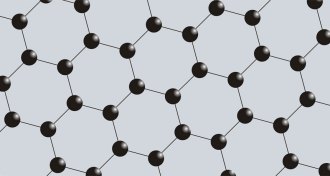 Materials Science
Materials ScienceGraphene’s allure becomes magnetic
Single-atom-thick sheets of carbon called graphene can be magnetized with the help of an insulating magnet.
By Andrew Grant -
 Astronomy
AstronomyLarge rocky planets excel at ocean building
Rocky planets a few times as massive as Earth may build deeper oceans – and sustain them for longer – than smaller worlds.
-
 Neuroscience
NeuroscienceSoft brain implant helps paralyzed rats walk again
Scientists have made a soft, flexible electrical implant that mimics the elasticity of the brain and spine's protective tissue.
-
 Humans
HumansBabbling to babies is OK, despite previous warnings against it
Fifty years ago, a researcher advised banning baby talk, but results since then say otherwise.
-
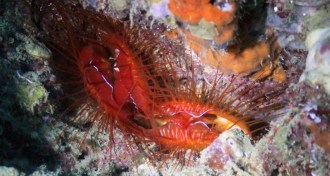 Animals
AnimalsDisco clams may flash chemical-weapons warning
Puzzling disco clam light show might warn predators not to bite.
By Susan Milius -
 Astronomy
AstronomyHubble telescope captures panorama of Andromeda galaxy
The Hubble Space Telescope captured a panoramic mosaic of the closest spiral galaxy to the Milky Way, mapping the light from over 100 million stars.
-
 Climate
ClimateWarming climate will force airlines to shed weight, increase costs
More frequent hot days coming with climate change will require airlines to reduce aircraft takeoff weight.
-
 Earth
EarthPumping carbon dioxide deep underground may trigger earthquakes
Injecting carbon dioxide deep underground offers a promising way to curb global warming, but the extra pressure may cause faults to slip or fractures to release the buried gas.
-
 Astronomy
AstronomyPair of black holes prepare to take the plunge
A pair of supermassive black holes in a distant galaxy will likely collide in the next million years.
-
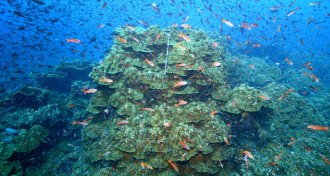 Climate
ClimateGalápagos waters preview future for corals
Posthumous analysis of Galápagos coral reefs reveals how climate change, carbon dioxide and pollution could kill off reefs worldwide by 2050.
By Beth Mole -
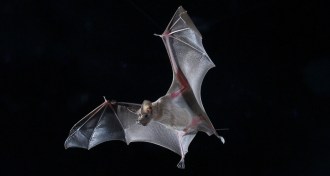 Animals
Animals‘Bag of chips effect’ helps bats find a meal
Bats get a clue to where dinner is by listening to peers attacking prey.
-
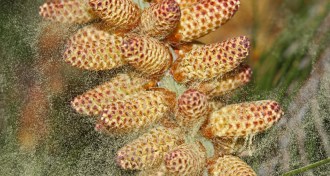 Health & Medicine
Health & MedicineAllergy-related Google searches follow pollen season ups and downs
Google search queries could help researchers track pollen seasons in areas without pollen-monitoring stations.